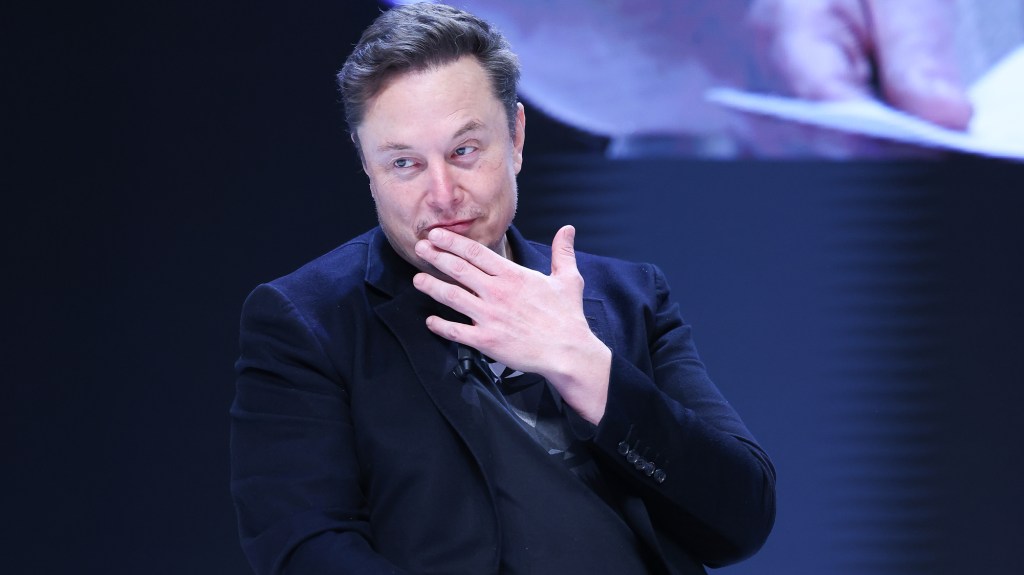France’s Leadership Crisis Poses Challenges for European Economic Growth
After Germany, France is now under scrutiny. The complexities faced by Europe’s two largest economies are impossible to ignore, and the ramifications are significant.
My admiration for Michel Barnier grew during the Brexit negotiations, where he presented a comprehensive array of documents while David Davis, our negotiator, struggled to fill the space in front of him. It was a striking juxtaposition, with Barnier appearing prepared and organized while Davis seemed to rely on uncommunicated thoughts.
However, Barnier, who once held the title of the EU’s leading Brexit negotiator, is now making headlines for a different reason. He has become the shortest-serving prime minister of France since the Fifth Republic was established in 1958, and the first to be ousted from office by parliament in over six decades. His political journey may soon warrant another autobiographical chapter.
France is witnessing its own version of a Liz Truss situation; however, Barnier’s abrupt political exit, although unexpected, did not generate the financial panic seen in the UK last year. Barnier’s proposed budget to revive France’s struggling public finances was effectively discarded before it could be enacted. Convention dictates that a government unable to pass its budget is considered a failure.
In the wake of Barnier’s dismissal, the market reaction was muted. A day later, French ten-year government bond yields hovered just below 2.9 percent, in contrast to Germany at 2.1 percent and relatively close to Greece’s stable rates, yet still lower than Italy’s 3.2 percent. Compared to the UK’s 4.25 percent and the US’s 4.2 percent, French yields remained comparatively favorable.
The euro remained largely stable, trading slightly above 1.05 against the dollar. While the euro was stronger in prior months, much of the currency fluctuation relates to external factors, including the recent developments in the US rather than directly to challenges faced by France and Germany. It remains early days, and no signs of a new eurozone crisis have emerged yet.
Looking ahead, the economic landscape is concerning. With both Germany and France under strain, the European Union and eurozone can be likened to a twin-engine aircraft experiencing issues with both engines.
France’s GDP constitutes 16.6 percent of the EU economy and 18.3 percent of the eurozone. For Germany, these figures are 24.2 percent and 26.6 percent, respectively.
The close economic ties between France and Germany mean together they comprise over 40 percent of the EU economy and almost 45 percent of the eurozone. However, Germany’s sluggish growth has created a dependence on contributions from the rest of the eurozone, while France’s outlook remains murky.
Despite these challenges, the eurozone as a whole has been performing relatively well, with GDP increasing by 0.4 percent in the third quarter and employment rising by 0.2 percent, resulting in a low unemployment rate of 6.3 percent. Comparatively, the UK’s growth rate for the same period was only 0.1 percent, with an unemployment rate of 4.3 percent. Some countries, like Germany and the Netherlands, enjoy lower unemployment rates, while others like France and Spain are experiencing higher figures.
Since the Brexit referendum in mid-2016, the eurozone’s GDP has grown by 11.1 percent and 4.6 percent since the outbreak of the pandemic, outpacing the UK’s 9.6 percent and 2.9 percent growth in the same periods. This robust performance is notably impressive considering Germany’s stagnant growth.
Yet, new headwinds are emerging for the eurozone, not limited to the political upheaval in France and Germany. The purchasing managers’ index (PMI) for the euro area recently dropped to a ten-month low of 48.3, indicating a contraction according to S&P Global.
This downturn is troubling. According to a recent report from the International Monetary Fund, both the EU and eurozone require a renewed growth impetus, reminiscent of the expansion experienced two decades ago, to address the substantial income disparity with the US. An emphasis on strengthening the single market and advancing capital markets union is critical.
In a report titled “The Future of European Competitiveness,” commissioned by the Brussels government and authored by Mario Draghi, the former head of the European Central Bank, a clarion call for reform was made. It highlighted that Europe is entrapped within a rigid industrial framework with limited new companies emerging to rejuvenate existing industries.
With France operating in a political void and Germany facing its own internal priorities, meaningful reform seems bleak. The next assembly elections in France are set for July, and President Macron appears intent on completing his term through 2027.
In the meantime, the European Central Bank is likely to initiate a reduction in official interest rates by another 25 basis points in the coming week, with further reductions anticipated in the following year. The loss of economic momentum in Europe allows the central bank to pursue a more aggressive approach toward lowering interest rates, contrasting with the UK where the Bank of England has signaled a cautious stance due to potential inflationary pressures.
France’s current leadership crisis will likely result in continued indecisiveness, as the government grapples with a budget deficit of 6 percent of GDP and a national debt exceeding 110 percent.
Even before the OECD’s recent forecast indicating 0.9 percent GDP growth in France for the next year, and 1 percent in 2026, revisions downward of these figures were already underway due to governmental instability. While a collapse of the French economy seems unlikely, growth of merely 0.5 percent next year may require significant efforts.
With both France and Germany constrained, the rest of the EU and eurozone will find it challenging to bridge the gap.
From a political standpoint, the timing of the setbacks in France and Germany could not be worse, adding to the economic turbulence.
Final Thoughts
Understanding economics can often be complex, as I am reminded by the multitude of inquiries I receive weekly. It is vital for even the most basic economic concepts to be integrated into education.
A new initiative by the charity Discover Economics, in collaboration with the Royal Economic Society, aims to introduce fundamental economics into the national curriculum. The ongoing curriculum review has garnered support from various institutions, including the Bank of England and the Financial Conduct Authority, all endorsing the initiative.
According to a spokesperson, the objective is to incorporate basic economics literacy into citizenship education, which is fundamentally important. Many who succeed in business possess an innate understanding of economics even without formal education in the field, although misconceptions do occur.
To clarify, labor productivity refers to the output produced or value generated from each employee or hour worked, while productivity growth constitutes the increase in this output over time.
Awareness of basic economic principles is crucial, and I sincerely hope this educational effort proves successful.
As the holiday season approaches, I will soon be hosting my annual quiz, along with some lighthearted jokes. The quiz will take place in two weeks, allowing ample time for responses, and I aim to provide prizes focused on enhancing knowledge of economics.
I also encourage contributions for the humorous side of the season; feel free to share jokes to keep the content engaging.




Post Comment